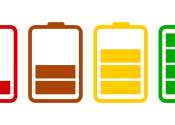Nano Energy
Nano Energy is a multidisciplinary, rapid-publication forum of original peer-reviewed contributions on the science and engineering of nanomaterials and nanodevices used in all forms of energy harvesting, conversion, storage, utilization and policy. Through its mixture of articles, reviews, communications, research news, and information on key developments, Nano Energy provides a comprehensive coverage of this exciting and dynamic field which joins nanoscience and nanotechnology with energy science. The journal is relevant to all those who are interested in nanomaterials solutions to the energy problem.
- Publisher
- Elsevier
- Website
- http://www.journals.elsevier.com/nano-energy/
- Impact factor
- 10.325 (2014)
Some content from Wikipedia,
licensed under CC BY-SA









